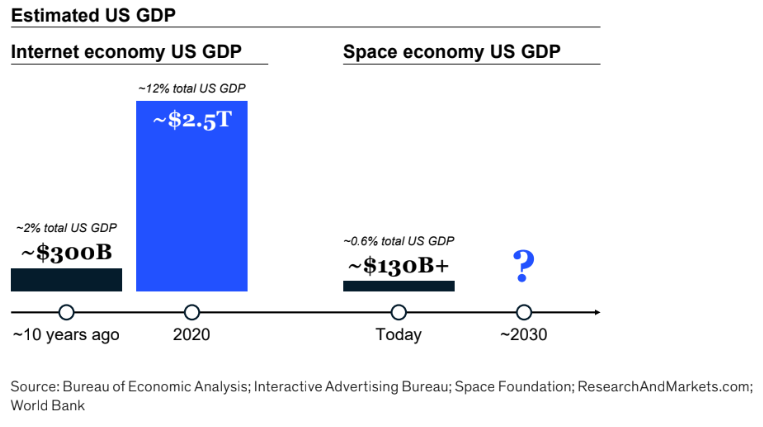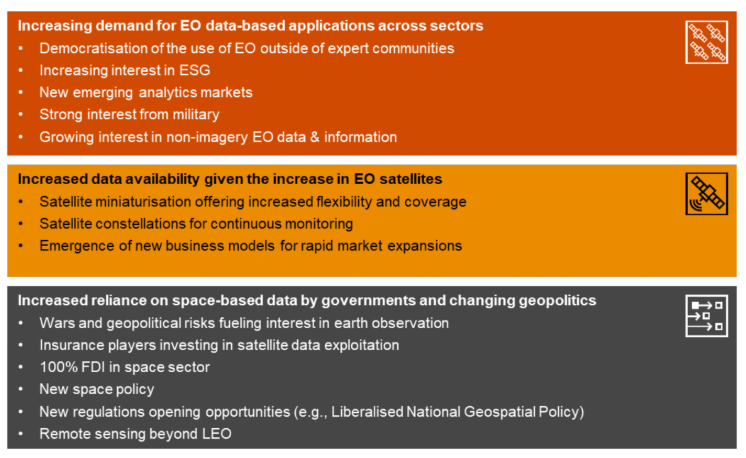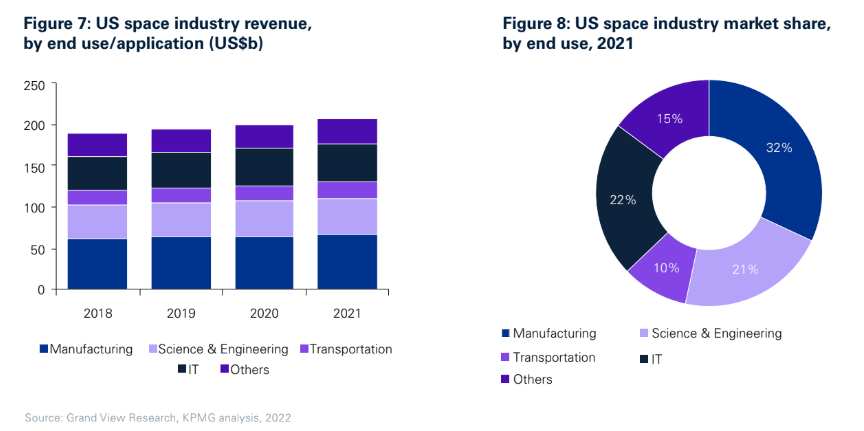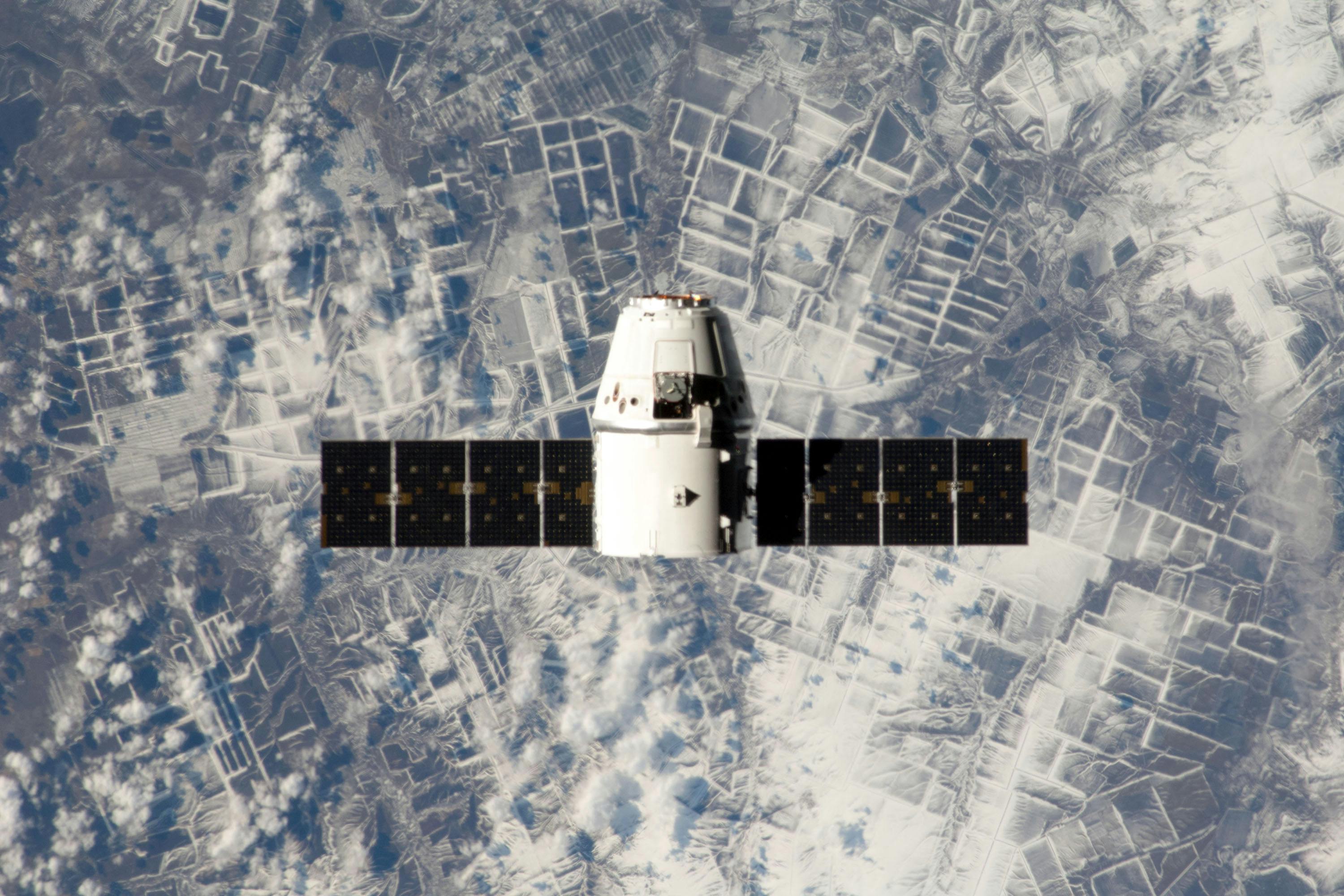Hey everyone! As someone living and breathing the space world, we’re incredibly excited about one of the most transformative aspects of this new era: Space Data.
Our ultimate dream? A future where data from space isn’t just for experts or governments, but a ubiquitous resource that flows freely (within responsible limits, of course!), providing actionable insights that help us grow food more efficiently, respond to emergencies faster, navigate supply chains seamlessly, manage our environment, and fundamentally improve life on Earth for everyone. Imagine a world where we can literally take the pulse of the planet from orbit to solve our biggest challenges!

Just how much data are we talking about? Earth Observation (EO) satellites alone already provide over 150 terabytes of data per day! *. This deluge of information highlights just how rapidly space data is becoming a central part of our digital world, far beyond just traditional ‘space’ companies. It’s driving demand and creating new business opportunities across different industries.
* Article by Bain & Company, 2021: Looking up to space

This surge in data and its expanding use means space data is rapidly turning into a valuable commodity. It’s enabling everything from precision agriculture and disaster management to advanced logistics and even potentially enabling governments to conduct things like a census from space. Satellites underpin our modern lives, powering communications, travel, financial services, and monitoring our planet’s weather and ecosystems. The services derived from space data are becoming essential for businesses and end-users alike.
But, as with any frontier, there are significant challenges on this path to data-driven utopia:
- Data Overload: We’re collecting massive amounts of data, but not all of it is processed efficiently. The real value comes from turning raw data into actionable insights, which requires advanced analytics, AI, and better infrastructure.
- Governance and Regulation: Our current space regulations, some dating back to the 1960s, haven’t kept pace with the speed of commercial activity and technological change. We need clear rules for managing this new data landscape. Getting international consensus on this is tricky.
- Ownership and Sharing: There’s a discussion around whether data should be owned or shared. Clarifying rights for resources like spectrum, which is essential for transmitting data, is crucial. Exclusive ownership of communication bandwidth could even raise monopoly concerns.
- Personal Privacy: With the increasing volume and detail of data collected, particularly from EO, personal privacy is understandably challenged.
The reason behind many of these problems is simply that the commercial space sector and its capabilities are evolving much faster than the frameworks designed to manage them. Space was once seen as a global common, but now it’s becoming a complex, crowded business environment.
We truly believe that if we can proactively address these challenges head-on, that utopian vision of space data profoundly benefiting everyone on Earth is within reach. It requires careful balancing and proactive action.

So, what can we do to pave the way?
- Modernize Space Governance: We need to prioritize creating effective governance frameworks specifically for space data. This means international collaboration, developing new norms and standards, and evolving legislation to cover data ownership, access, and usage rights. Open communication among all stakeholders is key.
- Invest in Analytics & AI: To make sense of the data flood, we must invest in technology like Artificial Intelligence (AI) and edge computing for in-orbit processing and improve cloud infrastructure on the ground. The focus should be on generating and selling actionable insights, not just raw data.
- Foster Collaboration: Success depends on cooperation between governments, private companies, and across different industries. Governments can act as anchor customers. Sharing knowledge helps everyone.
- Build Sustainable Practices: This applies not just to debris, but to how we manage data resources and ensure equitable access. Using space data to help achieve Earth sustainability goals should be a priority.
By working together to create clearer rules, invest in smart tech, and collaborate effectively, we can unlock the immense potential of space data and ensure it benefits all of humanity, creating value and helping solve some of our toughest challenges.
What are your thoughts on space data becoming a commodity? What opportunities or challenges do you see? Let me know in the comments!
At Zamun, we believe that the power of data—whether from Earth or space—is only as valuable as the story it tells and the action it drives. As space data becomes the next frontier for insights, we help businesses translate this complex information into clear, compelling narratives and high-impact marketing strategies. Let’s explore how cutting-edge data can power your next marketing breakthrough. To know more about how we can take your organization to a higher orbit, visit Our Services Page or drop in an email to connect.)
FAQs
Space data refers to information collected by satellites—like images, weather patterns, and environmental changes. It’s becoming crucial for industries like agriculture, logistics, disaster management, and urban planning.
Absolutely. From retailers to governments, many can benefit—from tracking climate risk to optimizing supply chains. It’s about using insights, not launching rockets.
Not with the right tools. AI and analytics platforms can process space data into simple, actionable insights for real-world problems.
It provides real-time location and environment insight which can help brands target audiences better and run smarter, more contextual campaigns.
Glossary
EO: Earth Observation (EO) is the practice of gathering information about the Earth’s surface, atmosphere, and oceans using remote sensing technologies.
